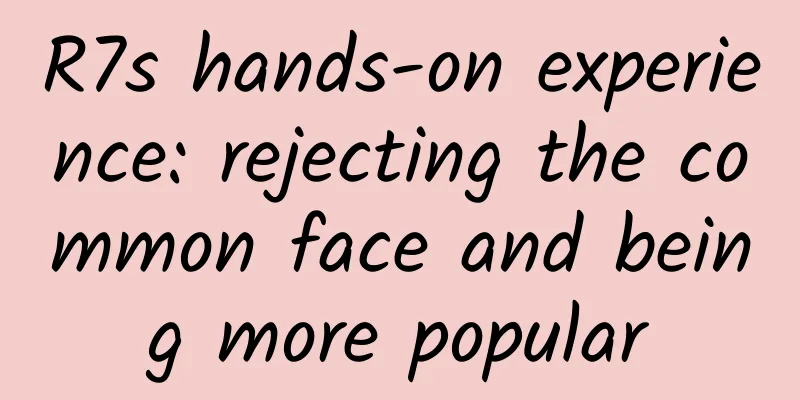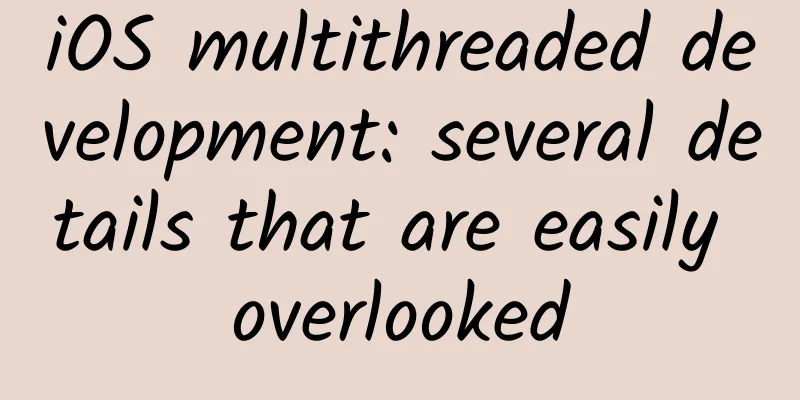This time, I'm not going to stand on Google

|
The EU issued a sky-high fine to Google, and there were many comments from all sides, some supporting Google, and some supporting the EU. The US President even escalated the incident into a diplomatic conflict, saying on Twitter: "I told you! The EU just fined one of our great companies, Google, $5 billion. They really have been taking advantage of the United States, but not for much longer!" No matter how others argue, the Chinese are the least qualified to interrupt. In terms of user scale, China is definitely the largest market for Android. But here, not many people know about Android, and even fewer know the relationship between Android and Google. We use MIUI, EMUI, and Smartisan OS. What does it have to do with Google? We are the real outsiders in the EU's fight against Google. We have not encountered any of the "evil deeds" listed by the EU. We do not use Google Search, Google Play, and we hardly install the Chrome browser. Has Google really abused its monopoly advantage? I don't think so. So this time, we look at the matter of Google being fined with a certain mentality of watching the fun and not being afraid of the big trouble. As you know, I have always been a big fan of Google, but this time, I am not going to stand with Google. Not standing with Google does not mean I stand with the EU. If the world were under the jurisdiction of the EU, can you imagine the highly scaled and commercialized Internet today? How many Googles and Facebooks would have been fined into bankruptcy? I even think that the EU may be addicted to issuing fines. Although there are not many decent Internet companies in the EU, the EU still has a different sense of presence and self-confidence in the endless fines. EU fines have almost become a certification mark of achievement for tech giants. If you haven’t been fined a huge amount by the EU, you are embarrassed to call yourself a tech giant. Microsoft has been fined 2 billion euros by the EU several times; Intel has been fined 1.06 billion euros; Apple has been ordered to pay 13 billion euros in back taxes to Ireland; Amazon has been ordered to pay 250 million euros in back taxes; Facebook has been fined 110 million euros; Qualcomm has been fined 997 million euros… However, sometimes it does not seem to be a bad thing to have a stubborn and uncompromising EU. Some time ago, the most stringent privacy protection regulation in history, the EU General Data Protection Regulation (GDPR), officially came into effect. Internet companies were busy updating their privacy terms. This proves that with the EU playing the good guy, Internet companies that are accustomed to shooting first and aiming later have become more fearful. On the day the EU fine was announced, Google CEO Sundar Pichai immediately published an open letter, "Android creates more choices, not less," to fully refute the EU's fine. I decided not to stand with Google, mainly because I don't agree with the views in this open letter. Or, in other words, Pichai failed to convince me. In this response, Pichai argued that Android does have some rules to ensure technical compatibility, but mobile phone manufacturers do not have to sign these rules. "They can use or modify Android in any way they want, just like Amazon has done with Fire tablets and TV sticks." Well, Pichai didn’t mention that Amazon once made a phone, the Fire Phone, which no one bought. Who needs a phone without the Google Play Store and Google apps? Google's use of Amazon to prove the freedom and openness of Android is not very convincing, because Google actually doesn't like Amazon's behavior of "eating Android's food and smashing Android's pot". In Google's eyes, Amazon's trimmed version of Android - Fire OS, is an example of Android's "fragmentation". According to Google's rules, you can indeed customize Android and trim Android's code and components at will, but the customized Android is not allowed to install the Google service framework. Not only is the Google brand not allowed to appear, Google applications are not allowed to be installed, and a large number of third-party applications that rely on the Google service framework may not be used even if they are installed. Google maintains the compatibility of Android and avoids the so-called "fragmentation" through this mandatory rule. According to Google's definition, fragmentation is bad, "without compatibility rules around the baseline, the open source platform will be fragmented, which will hurt users, developers and mobile phone manufacturers." But if you compare the distribution of operating system versions of active Android and iOS devices, you will find that compared with iOS, Android is indeed fragmented. This fragmentation is caused by the inability of a large number of devices to upgrade the operating system in a timely manner. A large number of devices that are still running old versions of Android not only cannot enjoy new features, but even put themselves under various security risks. That is to say, although Google particularly dislikes fragmentation, it is powerless to change the current situation of Android fragmentation. I don't know whether Pichai thinks that Linux, with its different distributions such as Ubuntu, Fedora, openSUSE, Debian, Slackware, etc., is fragmented, but it is obvious that the "fragmentation" of Linux does not harm users, developers, and hardware manufacturers. On the contrary, different distributions bring ecological diversity to Linux and actually increase user choices. Google's "locking" of Android has made Amazon, such a powerful competitor, lose its temper. Therefore, Amazon is not a good example to refute the EU. What it can prove is not the freedom and openness of Android, but the non-freedom and non-openness imposed by Google on Android. If the mobile phone you produce is installed with a new mobile phone operating system developed based on the Android source code, then it will be difficult for this mobile phone to find a place to survive in the market. Of course, the above statement does not include China, which is a completely different story. Manufacturers here can provide various trimmed versions of Android, the only thing in common is that they do not contain any Google elements. Here, counting the downloads of Android apps has even become a cutting-edge technology, because every mobile phone here has its own app store, and each app store has its own payment system. From this perspective, the people who should be most grateful to Google for making Android open source should be the Chinese. In comparison, the benefits that people in other places have gained from Android open source are really pitiful. Pichai also said it was easy to remove any pre-installed app on an Android device and choose an alternative, as proof that Google was not profiting unduly from pre-installed apps. Are those companies that spent a lot of money on pre-installed products already feeling ashamed now? Most users do not uninstall pre-installed apps, not because uninstalling is troublesome, but because they don’t think there is anything wrong with these apps at all, so why should they uninstall them? In other words, if the pre-installed app is a product of Google’s competitors, for example, if the browser is pre-installed with Opera, they will not uninstall it either, because there is no need. Pre-installation, whether or not it can be easily uninstalled, actually reduces the chances of third-party applications being installed. Microsoft was fined by the European Union for pre-installing browsers and media players, and the EU ordered Microsoft to pre-install even competitors' products. One of the most important points in Pichai's open letter is that Google spent billions of dollars to develop Android and provided it to everyone for free. Google's goal is not much, just "providing the option of pre-installing a set of popular Google applications (such as Search, Chrome, Play, Maps and Gmail)", which is quite restrained. Pichai meant that for Android, free is a perfect business model, and the beneficiaries are not only Google, but also mobile phone manufacturers, operators, developers and consumers. However, the EU's decision is destroying this model that benefits everyone. Pichai believes that the EU has rejected the business model that made Android successful, which is to support proprietary systems on open platforms. I think Pichai is deliberately portraying the EU as an enemy of open platforms, depriving everyone of the benefits of Android's business model. Pichai hinted that under the pressure of the EU, Android has the possibility of turning from open to closed, and from free open source software to paid proprietary software. But this inference is not valid. The EU does not care whether it is a proprietary system (such as Windows) or an open system (such as Android). What it really cares about is the abuse of monopoly advantages - of course, the abuse recognized by the EU. I guess the EU cannot afford to be accused of destroying the Android ecosystem and even attacking open systems. In fact, we can also ask Google a question: Linux does not have so many commercial demands, so why can it do so well and benefit the whole world? The answer is simple: Linux does not belong to anyone, so it belongs to everyone. Android belongs to everyone in name, but in reality it belongs to Google. Google chose open source and openness not for any moral reasons, but for its own interests. Open Android is not more noble than closed iOS. In the final analysis, they are both well-thought-out business choices. In 2007, when iOS had already opened the door to the future and many mobile operating systems such as Symbian, Windows Phone, BlackBerry OS, and Palm OS were rushing into the market, Google's choice to make Android open source and free was undoubtedly the most correct and most advantageous business decision. This move allowed a layman in the smartphone market to become a significant leader in this field in a very short period of time. Even if Android eventually has to adopt a paid model, it does not mean that the smartphone market will be in disaster. Don't forget that before Android, Windows was the most successful operating system in history, but Windows was not provided for free. Therefore, the success of a platform is not necessarily related to whether the operating system is free or paid. But what is certain is that if Android is charged, the benefits that Google can get from Android will definitely not be as great as the free model like today. Moreover, if Android is charged, someone will definitely come out and make a new free Android, just like Google did in 2007. If Android charges a fee, the Chinese mobile phone manufacturers may be the most unhappy. Without open source Android, how can they continue to make their modified versions of Android? In the past 10 years, we have indeed benefited a lot from the development of Android, and we have to thank Google anyway. But I believe that Google has gained more from Android. I dare not say how much of Google's revenue is directly or indirectly related to Android, and how much of Google's total market value is due to Android's dominance in the mobile Internet. What is certain is that without Android, there would be no Google today. I agree that Android is important to Google, but I don't agree with the reasons Pichai said. If Android is a proprietary system like Windows, maybe I won't say anything, but at least Android is an open source system in name, and it deserves more freedom, especially in commercialization. |
<<: Tips for Protocol-Oriented Programming (POP) in Swift
>>: If Android 'can't stay free', what can Google do?
Recommend
After 2 years at Tencent, I have benefited a lot from these 15 operational experiences!
What kind of preparation and capabilities are nee...
How to increase the click-through rate of Tik Tok short videos?
Today I will share with you (what types of Tik To...
Mobile technology for the masses: words and gestures from the Overheard Word
[[120670]] Programmatically integrate third-party...
The brightest "cosmic fireworks show" to date has been fully recorded and selected as one of the top ten scientific advances of the year. What does this achievement of "Lasso" tell us?
On February 29, 2024, the National Natural Scienc...
The price of old luxury cars plummets, and new environmental regulations may change the second-hand car landscape in Beijing
According to the recently revised "Beijing A...
The road to Shu is harder than ascending to heaven: Which road exactly is the road to Shu?
The road to Shu is as difficult as ascending to h...
Latest research: Elderly people who eat more meat may live longer! But pay attention to these 4 points
This article was reviewed by: Pa Lizhe, chief phy...
What is the most effective way to attract new customers?
Background knowledge: CAC = cost to acquire a sin...
Individual exoskeleton! Let the "future soldier" have steel bones?
Exoskeleton, in its original definition, is simpl...
He and his colleagues wrote a letter to Deng Xiaoping, which put China at the starting line of world high technology.
On the road of scientific exploration, countless ...
The points wall machine is completely ineffective! How long will it take for the ASO intervention to recover?
Xiaomaowan Trial Points Wall Self-service Deliver...
Facebook: The next WeChat?
[[259904]] 【Super Platform】 The world of the Inte...
When will the Anhui epidemic end in 2022? When will the ban be lifted? Attached the latest news
Recently, many provinces and cities including Huna...
The “smallest sun of the year” is here. Will the weather get cooler as the sun moves further away?
(Original title: "The smallest sun of the ye...
Why do puppies and cats shake their bodies after being splashed with water? | Nature Trumpet
Welcome to the 69th issue of the Nature Trumpet c...









